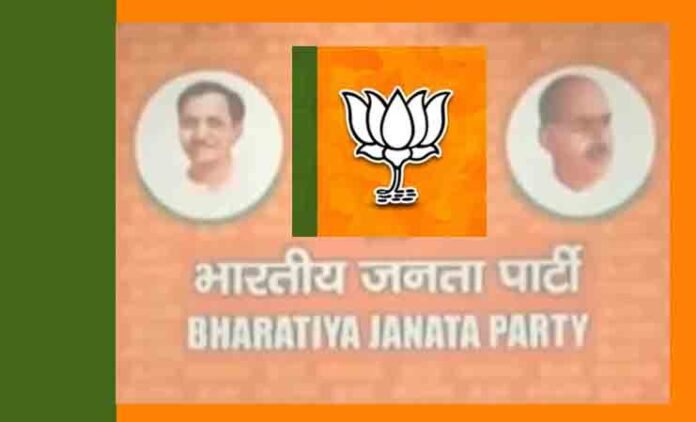The BJP’s first list for the Jammu and Kashmir assembly elections is out, featuring a historic allocation of tickets to Muslim candidates. Discover the implications of this strategic move and its potential impact on the region’s political landscape.
In a move that has raised eyebrows and sparked conversations across the political spectrum, the Bharatiya Janata Party (BJP) has released its first list of candidates for the upcoming Jammu and Kashmir assembly elections. With 44 names announced, the list is notable not just for the names it includes but also for those it doesn’t. However, what has truly caught the nation’s attention is the unprecedented inclusion of Muslim candidates. For the first time, the BJP has allocated a significant number of tickets to Muslim candidates in its initial list, a decision that could signal a shift in the party’s strategy and its approach to the region’s complex sociopolitical fabric.
## A Historic Move: Muslims Given Tickets Generously
Traditionally, the BJP has been seen as a party with a strong base among the Hindu majority, particularly in regions like Jammu and Kashmir, where religious and ethnic lines often influence voting patterns. However, the decision to include a large number of Muslim candidates in its first list is a clear indication that the party is looking to broaden its appeal and possibly realign its political strategy in the region.
- Muslim Candidates in the First List: Out of the 44 candidates announced, a notable number are Muslims. This is a significant departure from previous elections, where the party’s candidate list was predominantly composed of non-Muslims. This time around, the BJP seems to be making a concerted effort to reach out to the Muslim electorate, which constitutes a large percentage of Jammu and Kashmir’s population.
- Strategic Implications: By including more Muslim candidates, the BJP is likely aiming to dispel the notion that it is a party that caters only to the Hindu vote. This move could also be seen as an attempt to challenge the dominance of other parties in the region, such as the National Conference (NC) and the People’s Democratic Party (PDP), which have traditionally garnered significant support from Muslim voters.
## The Candidates: A Closer Look at the First Phase
The first phase of the election will see 15 candidates vying for seats in key constituencies. Among them are several prominent Muslim figures who have been given the party’s ticket, signaling the BJP’s intention to make serious inroads into areas that have previously been strongholds of its rivals.
- Engineer Syed Shaukat Gayur will contest from Pampore, a constituency with a significant Muslim population. His selection is indicative of the party’s strategy to present candidates who are not only politically experienced but also deeply connected to the local community.
- Arshid Bhat has been given the ticket for Rajpora, another constituency where the Muslim vote is crucial. Bhat’s candidacy is expected to draw significant attention, as he represents a new generation of leaders within the BJP who are being positioned to appeal to a broader demographic.
- Javed Ahmad Qadri from Shopian and Mohammad Rafiq Wani from Anantnag West are other key Muslim candidates in the first phase. Their inclusion reflects the party’s broader strategy of contesting in areas that have historically been difficult for the BJP to penetrate.
## Second and Third Phases: Consolidating the Strategy
In the second and third phases of the election, the BJP continues to push its inclusive agenda. The party has announced 10 candidates for the second phase and 19 for the third, with a continued focus on diversity.
- Phase Two: The second phase will see the party fielding candidates in constituencies that are not only politically significant but also symbolically important in terms of the party’s outreach efforts. By placing candidates in these regions, the BJP is signaling its commitment to a pan-regional strategy that includes all communities.
- Phase Three: The third phase features 19 candidates, including several prominent Muslim figures. The BJP’s decision to include these candidates is a clear indication of its intent to create a more inclusive party image, one that appeals to the diverse electorate of Jammu and Kashmir.
## Notable Omissions: Former Deputy CMs Left Out
While the inclusion of Muslim candidates has been a highlight, the list has also generated buzz for the names it omits. Two of the most surprising exclusions are those of former Deputy Chief Ministers Nirmal Singh and Kavinder Gupta. Both leaders have been influential figures within the party, and their absence from the first list has sparked speculation about the BJP’s evolving strategy in the region.
- Nirmal Singh: Singh, who had won from the Billawar assembly seat in 2014, has been a prominent face of the BJP in Jammu and Kashmir. His omission from the first list has led to speculation that the party might be looking to introduce fresh faces or adopt a new approach in constituencies where it has traditionally been strong.
- Kavinder Gupta: Like Singh, Gupta’s absence from the first list has raised eyebrows. A former Deputy Chief Minister, Gupta has been a key player in the BJP’s Jammu and Kashmir strategy. While there are rumors that his name might appear in subsequent lists, his initial exclusion is notable.
## State Party President’s Exclusion: What It Could Mean
Another significant omission from the list is Ravindra Raina, the BJP’s state president. Raina’s absence from the first list has fueled further speculation about the party’s internal dynamics and its strategic direction in Jammu and Kashmir.
- Ravindra Raina: As the state president, Raina has been instrumental in shaping the BJP’s approach in the region. His absence from the list could suggest a shift in the party’s internal hierarchy or a strategic decision to focus on other leaders who can potentially bring in new voters.
## Implications for the Election
The BJP’s decision to include a large number of Muslim candidates in its first list is a bold move that could have significant implications for the upcoming elections. By doing so, the party is not only challenging the traditional political order in Jammu and Kashmir but also attempting to redefine its image as a party that is inclusive and representative of all communities.
- Impact on Voter Perception: The inclusion of Muslim candidates could help the BJP appeal to a broader section of voters who may have previously been reluctant to support the party. This could lead to a more competitive election, with the BJP gaining ground in areas where it has historically struggled.
- Challenges for Rival Parties: The move is also likely to pose a challenge to other political parties in the region, particularly the NC and PDP, which have traditionally relied on the Muslim vote. The BJP’s strategy could force these parties to rethink their approach and possibly realign their own candidate lists to counter the BJP’s outreach.
















